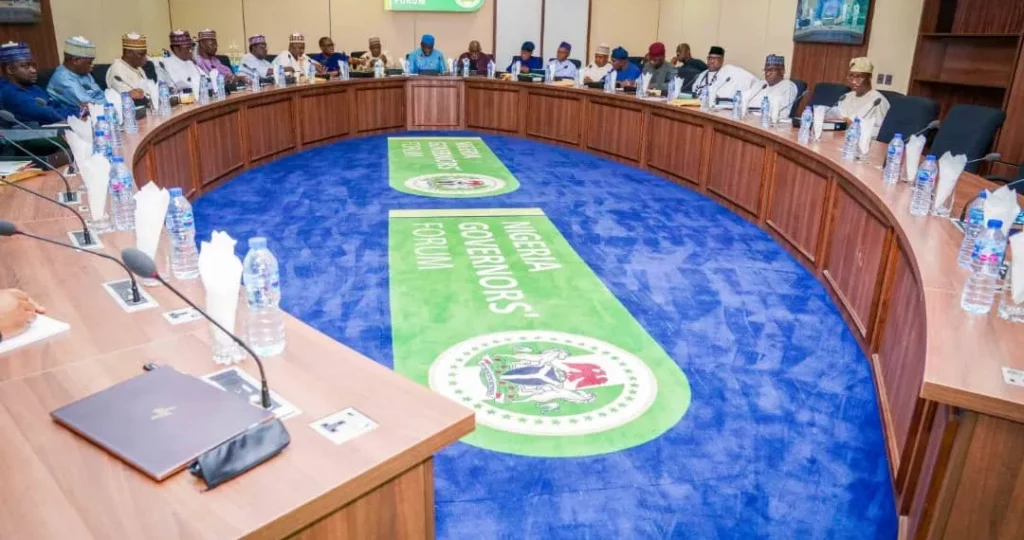VERY recently, there was a news report in Ikengaonline and other news outlets concerning the Enugu West senatorial district. In that report, a Peoples Democratic Party (PDP) aspirant for the senate, Senator Ben-Collins Ndu, had gone to meet the party delegates of the senatorial district in a bid to persuade them to vote for him in the primary election.
What the senatorial aspirant did was exactly what the tenets of democracy prescribe given that power in a democracy resides in the people – what is more accurately defined as popular sovereignty. And that is most probably where the PDP got its slogan, Power-to-the-People from.
In the course of the campaign engagement, the aspirant used the opportunity to unfold his legislative agenda for the senatorial district if elected. Part of the agenda, according to him, was to ensure even development in his senatorial district as well as ensure that all natural resources in the area were harnessed. “I want to assure you that I will not be a back-bencher in the Red Chambers. I know how to harness all the mineral resources in the five Local Government Areas in the zone,” he said.
But when it was the turn of the people to speak, what they said was indeed shocking! The chairmen of the PDP in the five local governments under the senatorial district told the aspirant in plain language that no matter how lofty his legislative agenda may be, their loyalty was with the governor. Yes, the Governor of Enugu State. Specifically, the PDP Chairman in Awgu Local Government Area, Mr Chijekwu Nebo, said that they were waiting for Gov. Ifeanyi Ugwuanyi to make a pronouncement on who would represent the zone in the senate! In the same Enugu State, a former governor and now senator, Chimaroke Nnamani, had publicly asserted that Governor Ugwuanyi alone would decide who succeeds him as the governor of the state.
Make no mistake, Enugu State is not alone in this perfidious journey of making mockery of democracy. The same scenario is playing out in all the 36 states of the federation with the governors constituting themselves as the electorate – deciding who is nominated for an elective position and who is voted for. A few examples might suffice here: In Ekiti State, where INEC will soon conduct a gubernatorial election, all the aspirants in APC alleged that the primary conducted by their party to choose its flag bearer was just a smokescreen to allow the state governor, Kayode Fayemi, to impose his favoured choice of successor. Similarly, in Abia State, seven gubernatorial aspirants including the deputy governor and the Senate Minority Leader, Enyinnaya Abaribe, had to withdraw from the PDP governorship race accusing the party of doing the bidding of the governor to impose his successor. Even the First Lady of Ondo State, Mrs Betty Anyanwu-Akeredolu, whose husband is the chairman of the Southern Governors’ Forum, could not be guaranteed a level playing field in the contest in her home state, Imo, when she dared to run for a senate seat. She alleged that Governor Hope Uzodimma, had hijacked and manipulated the delegates’ list to scheme her out of the race.
Generally, there are reports all over the country how governors handpick and decide who is cleared to purchase nomination forms from their respective parties. In fact, in some extreme cases, the governors are said to have instructed their parties not to sell forms to intending aspirants without their express approval or clearance. In other cases, it was reported that some governors had gone to their parties’ national secretariats and purchased a single form for each elective position in their state only to ‘retail’ to their chosen aspirants.
Even the president, Muhammadu Buhari, subtly touched on this matter a few days ago when he summoned state governors of his party, the All Progressives Congress (APC), and told them pointblank to support him to “choose his successor” since he did not intervene when they chose theirs. Another anti-democratic move, it should be noted.
The cumulative effect of this anti-democratic behaviour of state governors is that they single-handedly select who the governor will be; who goes to the senate; who is elected as member of the federal and state House; who becomes the local government chairpersons; who is appointed commissioner and who is even appointed minister or board member in their various states.
Sadly, the scenario painted above is not and cannot be the intendment of democracy. If anything, what the governors are doing is clearly antithetical to every principle of democracy and amounts to foisting dictatorship on the polity. Democracy advocates that power belongs to the people. And what this means is that the people have the right to choose who governs them in a free contest. Governors are simply products of a democratic process and therefore cannot appropriate the very process that threw them up. By appropriating the right to decide who votes and who is voted for, the governors are simply saying they in themselves are the very process of democracy.
Again, what the governors are doing strikes a dagger at the very heart of democracy, which is the freedom to make vote choice. The very essence of democracy through the electoral process is to provide citizens an array of choices from which the people make their own individual or group choices. Yes, those choices may not be rational; but even then, what qualifies democracy is not rationality of the vote but the freedom to exercise that vote. So, the governors cannot claim to be the repository of electoral wisdom.
Apart from the normative concerns associated with this praetorian disposition of the governors especially the inherent contradictions they pose for democracy, there is empirical evidence to suggest that good governance and service delivery also suffer in the process.
The first noticeable challenge of the usurping of the peoples’ rights of choice is the poor quality of representation in government. The governors in choosing who either succeeds them or who is elected or appointed to a particular office are most likely to be guided by selfish rather any altruistic considerations. Most of the time, the godfather (the role the governors are now playing) only looks out for his selfish interest and in doing so, is most likely to be attracted to a weak and malleable candidate recruited to do his own bidding. The many battles and confrontations between godfathers/mothers and their supposed godsons in many of the states of the federation from 1999 till date have in no small measure shortchanged the citizens in the delivery of the so-called democracy dividends. In some instances, as in Anambra State, between the Ubas and Chris Ngige, it even led to the wanton destruction of public facilities and the razing of the government house in Awka.
Second, once there is poor quality of representation, what necessarily follows is the poor quality of governance. Elections in a democracy serve only one purpose which is rewards. When the incumbent does well, or a candidate is preferred by the majority of citizens, he/she is rewarded with renewal of mandate or rewarded with sack, and the preferred candidate rewarded with the mandate to lead. This element of reward, which encourages those put in public office by the electorate to work hard enough to earn the renewal of their mandate or be the preferred choice of the people during the next election has been sidestepped by governors playing godfathers. Those elected by the grace of the governors are not likely to be accountable to the people and this has direct implications for good governance and public accountability. And this is what is being experienced from state to state in the country today with governance doing little to improve the lives of the people.
Third, the anti-democratic behaviour of the governors is also weakening one of the most important political institutions in our country, the Senate. Apart from recommending most of the people who end up at the nation’s apex legislative house, most of the governors have identified such a seminal institution as the Senate as their final retirement abode. In the end, the Nigerian senate has been watered down and reduced to the sleeping rooms of fatigued politicians and safe sanctuaries for criminal governors running from justice. And this, also, has direct effects on lawmaking, policy choices and good governance countrywide. A good example is how the National Assembly recently passed a law that ruled out legislators as delegates in their parties’ primaries.
We insist that what the governors are doing in usurping the democratic rights of the citizens in their various states is odious and must be challenged. Citizens must understand that all elected politicians – president, governors and their appointees or legislators at all levels are their direct employees. They therefore cannot dictate to the very people who hired them. Citizens must rise and know that they have constitutionally enshrined rights to impeach an errant governor through their representatives in the legislature or recall the latter when they do not perform to their expectations.
It also behoves the civil society to help the people by using their tools of advocacy and even litigation where necessary to challenge the many arbitrariness of those elected to serve the people, especially state governors, who are making democracy impossible to work and yield its dividends of good governance to the electorate.
Finally, the political parties have a vital role to play in this regard as the true custodians of democracy and not just Special Purpose Vehicles (SPV) for politicians to arrive in office during each election cycle. The party apparatus should not lose track of its ethical responsibility of ensuring that those who are privileged to fly their party flags totally submit themselves to the tenets of democracy.
Since there is no current constitutional provision that allows for independent candidacy outside of the political parties, Ikengaonline believes that political parties must act to rein in their governors now behaving like emperors. This role is not just crucial to the survival of our democracy but also would be consistent with the all-important concept of enlightened self-interest.
This editorial is part of activities by the African Center for Transparency (ACT) under the Collaborative Media Engagement for Development Inclusivity and Accountability Project, a multi-level intervention for media independence and government accountability, managed by the Wole Soyinka Centre for Investigative Journalism (WSCIJ) and supported by MacArthur Foundation.



